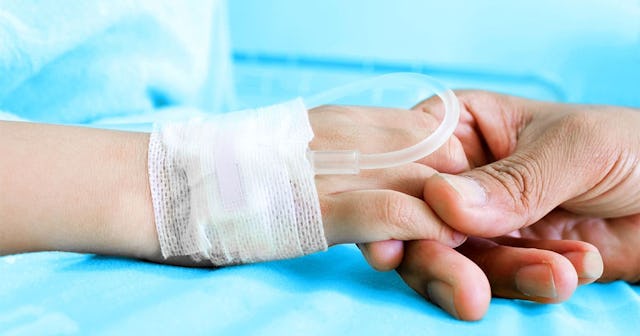MIS-C: What Does It Do To Kids' Brains?

In early March, life as we knew it in the United States changed. It morphed into something unrecognizable to many of us as schools slowly began to close, as face masks became a common accessory to go out in public, and anxiety grew across households about what would come of this new virus. What we knew then were two facts: it originated from Wuhan, China, and that it traveled fast. But how it traveled, we had no idea.
Then on January 21, 2020, the first case in the United States was diagnosed. It took three months for the novel virus to infect thousands of Americans, mostly adults over the age of 30. The first child was diagnosed in early March with the coronavirus. Early on, various news outlets reported that the virus didn’t seem to have a lasting impact on children.
Over the next few months, children became sick and their numbers rose. We now know that the virus most definitely sickens kids — and sometimes even kills them. Since the pandemic began in January, more than 380,000 children in the United States have been diagnosed with COVID-19, prompting scientists to take a hard look at their previous statements.
FS Productions/Getty
Perhaps most concerning is that some children experience a condition called Multisystem Inflammatory Syndrome, or MIS-C, a complication that is experienced about 2-4 weeks after initial infection with COVID-19, according to the CDC. In MIS-C, which is characterized by inflammation of the blood vessels, multiple systems and organs are affected, including the heart, lungs, skin, eyes, and a child’s gastrointestinal system. While rare, MIS-C is very dangerous, and almost always requires hospitalization. While generally treatable, some children have died from complications of MIS-C.
As if MIS-C weren’t frightening enough, there’s also evidence that it can change the brain. In a study published by the Journal of the American Medical Association (JAMA), of 27 previously-healthy children with MIS-C, nearly 15% of those developed “new-onset neurological symptoms” such as headaches, confusion, muscle weakness, and reduced reflexes. In each of these patients, the changes were visible on magnetic resonance imaging (MRI) in the corpus callosum — the part of the brain thought to be responsible for cognition.
Dr. John Torres, NBC Medical Correspondent spoke about MIS-C on the Today Show, saying that “Children’s brains are developing very quickly. If they get something like this, an inflammation of the brain or even small effects on the brain that could affect them lifelong. It could be something as severe as paralysis, something as subtle as confusion, maybe cognition issues, behavioral issues, memory loss, things that can stay with them lifelong.” Long term, doctors do not have a firm grasp on what issues will arise for the children who are diagnosed with MIS-C.
skaman306/Getty
At this point, there is much more information about the neurological effects of COVID-19 on adults; and, there are still a lot of unknowns when it comes to kids with MIS-C and its impact on the brain. But pediatric neurology specialist Dr. Omar Abdel-Mannan told NBC News that the volume of COVID cases in the United States (currently more than 5 million and counting) could mean thousands of patients with associated brain complications, including kids diagnosed with MIS-C.
“The virus has surprised us in many, many ways,” he said. “It does need really good quality longitudinal assessments and studies that will include looking at the cognition of these children, looking at their longer term psychological and psychiatric health.”
A recent report from the CDC confirmed 570 children in 40 states have contracted or died (1o deaths so far) from MIS-C. These numbers are alarming and fast-moving and scary, and scientific and medical professionals everywhere are trying to get a handle on understanding and treating it. The Children’s Hospital at Montefiore, located in New York City, launched a MIS-C program to follow up with kids post-discharge. The program is compiled of doctors from different disciplines to create a rapid-response approach to speed up recovery times of children sick with MIS-C. This is one step in the right direction to save lives and monitor symptoms more closely.
But as parents, we must continue to do our part and stay vigilant. We must make our kids wear face masks, and sanitize, and stay socially distant. We all play a role in keeping one another safe, and in the end, it’s going to take all of us doing our part to make this virus a memory instead of an emergency of this level. There are too many unknowns, and our kids’ brains — and lives — are too important to risk.
This article was originally published on